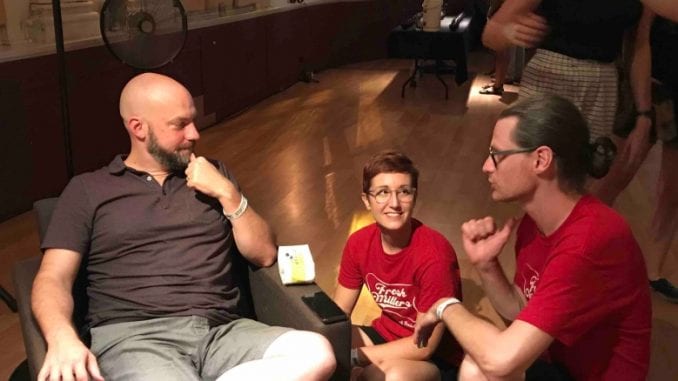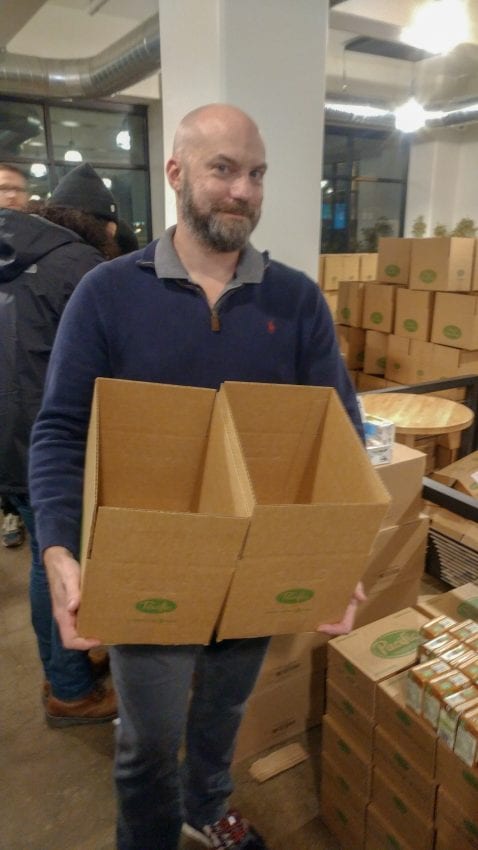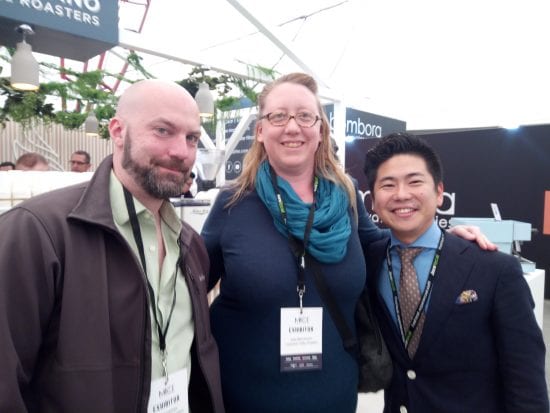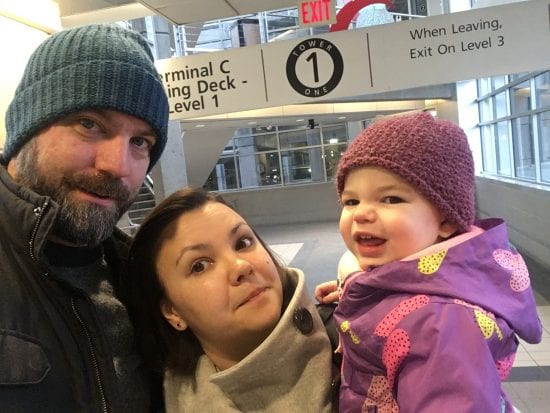
The 2013 World Barista Champion discusses his upcoming move to Melbourne, Australia, to join Nomad Coffee Group.
BY CHRIS RYAN
BARISTA MAGAZINE ONLINE
Photos courtesy of Pete Licata
In 2013, Pete Licata won the World Barista Championship in Melbourne, Australia, becoming only the second U.S. barista competitor to take home the global title (after Michael Phillips, then of Intelligentsia Coffee, did it in 2010).
Since winning the WBC, Pete—who is a native of the Kansas City, Mo., area—has primarily worked as a consultant. He launched Licata Coffee Consultants with business partner Holly Bastin, which has provided services ranging from barista-competition training to business-operations consulting for cafés.
This spring, Pete announced he is going in a new professional direction: In May he will return to the site of his WBC win by moving to Melbourne, where he will join Nomad Coffee Group as a research and development coffee consultant. We talked to Pete about why he and his family (his wife, Masha, and daughter, Zoey) decided to move across the world, what he’ll be doing in the new gig, and much more.
Chris Ryan: What will you be doing in your new role at Nomad Coffee Group?
Pete Licata: First, a little about Nomad: They’re an Australia-based coffee company with three main brands. There’s Veneziano Coffee Roasters, their dedicated specialty-coffee brand; Coffee Hit, which provides accessible coffee for the masses; and Black Bag Roasters, which offers wholesale solutions for companies.

There are three primary things I’ll be doing for Nomad. The first is research and development, which will include new equipment testing and looking at products and solutions we might want to use for the three coffee brands. The second is an educational component; they already have a great coffee-education team, but I’ll be working with the Nomad staff to oversee the direction of the educational program, which might include expanding to some public-facing events. The third thing is competition-focused, providing coaching and training to people from their brands who might be taking part in coffee competitions.
How did you end up taking a job in Australia?
Well, I’ve been consulting with Veneziano for a long time—primarily with competitions, and especially with WBC in 2014 and 2018. With the WBC in 2013, one of their staff members, Jade Jennings, was my barista buddy, and Veneziano gave me a space to do some practice runs. They have always been very hospitable, and we’ve carried on a strong relationship until the current day.
The other factor is, I’ve been consulting now for six years, and while I love the freedom and the ability to go to different countries and do all types of events, I don’t love the ups and downs that come with consulting and freelance work. It isn’t consistent work, and now that I have a wife and a 2-year-old daughter, it’s a big motivation for me to find something more stable.

Also, once I started thinking about this opportunity, I started to realize some other things, too. I’ve been doing the same kind of work for five or six years now, and while I feel great about what I’ve accomplished, I also feel like it’s nice to have something that pushes your boundaries a little bit—something to take you out of your comfort zone and force you to adapt and grow personally and professionally. It is hard to get that when you work mostly for yourself, and I’ve been realizing that’s actually a really important thing for me. So I’m excited to do that again.
How do you feel about moving to Melbourne, and is it odd to be moving across the world?
My wife and I both really love Australia, especially Melbourne. It’s just one of those places where we both always thought we could see ourselves living. It’s obviously a bigger city than Kansas City, and it has some different things like more mass-transit options. When we first started having conversations about potentially moving somewhere, Melbourne definitely came up. So once this opportunity came about, we decided to go for it.

As for how it feels, yeah, it’s a bit weird and a little nerve-racking. I mean, I moved to Hawaii a while back, which is basically halfway there. But I was also by myself and 30 at the time, so it was a different situation. And moving to Hawaii, even though it’s far away, it’s still in the States. The fundamental nature of day-to-day life wasn’t changing—it was still the same currency, same department stores, driving on the same side of the road, etc. It was just all located in a more tropical environment.
So moving to Australia will definitely be a bigger change. You have to be willing and open to accept that things are going to be different, and you have to be OK with that. There will probably be some struggles here and there, some things we didn’t expect and that might take some getting used to, but that’s the way it is. As long as we’re open to that, I think it will be OK.

